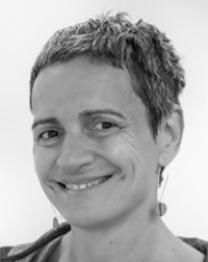
Technician and solar panels_Photo ©shutterstock_1398484271
As climate change accelerates, the global demand for low-carbon technologies and the critical minerals required to produce them will surge. This presents a unique opportunity for developing countries rich in these critical minerals to capitalize on the transition to a low-carbon and digital economy. Africa holds over a fifth of the world’s reserves of essential minerals used in electric vehicles, solar panels, and batteries. Despite this vast potential, the continent currently captures only 40 per cent of the revenue it could from these resources.
The critical minerals sector offers significant opportunities to capture local value. However, these opportunities are often inaccessible or inadequately tailored to meet the needs of local businesses, workers, Indigenous Peoples, and local communities in developing countries. Additionally, the lack of responsible investment and fair trade prevents the sustainable and inclusive development of the sector. There is a $225 billion investment shortfall in critical mineral mining projects in the Global South, particularly pronounced in downstream activities where high infrastructure costs impede value addition.
Most value-added activities in value chains are still concentrated outside the Global South, leaving many African countries reliant on raw commodity exports. Over the past 15 years, the number of commodity-dependent countries has increased by 15, underlining the challenge of relying on mineral exports without adding value locally. To harness the full potential of critical minerals, developing countries must focus on moving up global value chains, adding value to their resources, and diversifying their economies to foster sustainable development. Commodity-dependent developing countries should identify sector-specific diversification opportunities and develop complementary policy instruments to support those identified sectors, enabling them to fully leverage the potential of critical minerals.
Navigating the complexities of critical mineral supply chains requires governments to balance competing priorities such as trade, climate action, sustainable development, and energy security. As demand for these minerals continues to rise, there is a significant opportunity for resource-rich nations to stimulate economic growth, reduce poverty and inequality, and foster sustainable development. However, realizing these opportunities requires strategic and coordinated policies, as well as international collaboration, to ensure benefits are maximized while mitigating risks like environmental degradation and social inequality.
Objective
The webinar aimed to help developing countries, particularly in Africa, assess their strategic positioning in critical energy transition mineral value chains. It identified opportunities for value addition and economic diversification and propose targeted policy instruments in areas such as trade, investment, industry, logistics, technology, and innovation. It also addressed critical challenges, including financing, investment, and capacity-building, with a focus on enabling countries to capture more value from the global demand for CETMs. The goal is to help African countries move up value chains, add value to their resources, and foster sustainable economic development.
Panellists
- Ms Diane Sayinzoga, Chief, Regional Office for Africa, UN Trade and Development (UNCTAD)
- Ms. Luz Ma de la Mora, Director, Division on International Trade and Commodities (DITC), UNCTAD
- Mr. Clovis Freire, Chief a.i., Commodities Branch, DITC, UNCTAD
- Mr. Fred Kabanda, Manager, Extractives Division, African Natural Resources Management and Investment Centre, African Development Bank (AfDB)
- Mr. Oliver Maponga, Economic Affairs Officer, United Nations Economic Commission for Africa (UNECA)
- Ms. Anabel Marin, Research Fellow, Institute of Development Studies (IDS)
- Mr. Maurice Miema, Director, Ministry of Mining, Democratic Republic of the Congo
- Mr. Rolf Traeger, Chief, Least Developed Countries Section, Division for Africa, Least Developed Countries and Special Programmes, UNCTAD
- Moderator: Mr. Rachid Amui, Economic Affairs Officer, Commodities Branch, DITC, UNCTAD
Participants
Key stakeholders with an interest in critical minerals and the energy transition in Africa. Target participants include Policymakers, Representatives of international organizations and development partners, Government officials (Ministry of Mines, Policymakers and regulatory bodies), Industry leaders, academic and research institutions, and Civil society organizations.
Logistics, language and registration
The event was held virtually, enabling broad participation from across the continent and beyond, in English without interpretation.

Mrs. Diane SAYINZOGA is a Rwandese with extensive work experience in development related areas such as trade and Investment promotion, Special Economic Zones (SEZs), SMEs support and gender promotion etc. Before joining UNCTAD, she was the Head of the Special Economic Zones and Exports facilitation Department at Rwanda Development Board (RDB). She also previously served as Advisor in the office of the Executive Director at the International Trade center (ITC), under the Mo Ibrahim Leadership Fellowship program. She also worked for the Ministry of Finance and Economic Planning in Rwanda. Diane was a Board Member of different institutions in Rwanda such as the University Teaching Hospitals, the Local Administrative Entities Development Agency (LODA), and the Rwanda Standards Board (RSB). She has a Masters degree in International and Development Economics from the Economic School of Louvain – Belgium
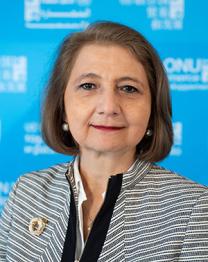
Luz Maria de la Mora is the Director of UNCTAD's Division on International Trade and Commodities. As a former Vice-Minister for International Trade and decades of government and private sector positions, Ms. de la Mora developed a career in international trade policy, negotiation, operations, and trade promotion.
During her tenure as Vice-Minister for International Trade of Mexico from 2018 to 2022, Ms. de la Mora led Mexico's trade and investment policy, overseeing fourteen free trade agreements with 51 countries. To bolster Mexico's development, she steered discussions in the World Trade Organization, the United States-Mexico-Canada Trade Agreement, Comprehensive and Progressive Agreement for Trans-Pacific Partnership, and Pacific Alliance, among others. She also coordinated policy dialogues and handled private sector consultations.
Ms. de la Mora holds a PhD in Political Science from Yale University, USA, a Master's degree in International Affairs from Carleton University, Canada, and a Bachelor's degree in International Relations from El Colegio de México, Mexico.
She is fluent in English and Spanish, and proficient in French.
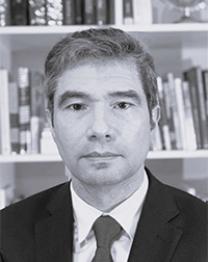
Clovis Freire Junior is Chief of Extractive Commodities Section, of the Division on International Trade and Commodities of UNCTAD in Geneva. He is an Economist specialized in economic diversification and strategies for building productive capacities in developing countries. His work supports the structural transformation and sustainable development of commodity-dependent developing countries.
He has over 20 years of work experience in the United Nations in programmes related to commodity dependence, least developed countries, technology and innovation for development, and disaster risk reduction. He holds a degree in Computer Engineering from the Technological Institute of Aeronautics (ITA), Brazil, a Master’s degree in Computer Sciences from the University de Brasília (UnB), an MBA in Strategic Management of Information Systems from the Fundação Getúlio Vargas (FGV), Brazil, and a PhD in Economics from the Maastricht University, in Maastricht, the Netherlands.
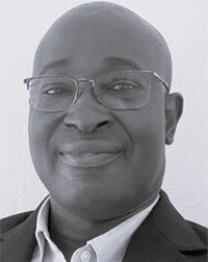
Rachid Amui is an Economic Affairs Officer in the Commodities Research and Analysis Section of the Commodities Branch, Division on International Trade and Commodities at UN Trade and Development (UNCTAD).
His research interests are in extractive industries and development, and commodity price risk management.
Prior to joining UNCTAD in 2003, Rachid worked extensively in the field of structures and foundation engineering.
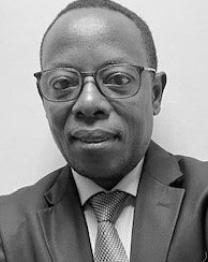
Fred Kabanda is Manager of the Extractives Division at the African Natural Resources Management and Investment Centre (ANRC) of the African Development Bank, where he oversees the work streams in oil, gas and mining sectors. He represents the Bank at boards of several institutions, including being the Bank’s representative on the EITI Board as an observer.
Before joining the Bank, Mr. Kabanda worked with Uganda’s Ministry of Energy and Mineral Development where his last position was Assistant Commissioner. He has also previously worked as a lecturer in Makerere University’s Geology Department. He is passionate about using natural resources to benefit citizens in host countries, including promoting feasible value addition programs that generate employment for the people.
He is trained in Engineering, Geology and Management. He holds a Master of Science degree in Petroleum Engineering from the Norwegian University of Science and Technology, Trondheim. He also holds degrees in Geology from Makerere University together with several postgraduate trainings in policy and management from the International Universities across the world.
Dr. Anabel Marín is a Research Fellow and Leader of the Business, Markets & State Cluster at the Institute of Development Studies (IDS) and a researcher at CONICET in Argentina (currently on leave). She holds a PhD in Science and Technology Policy from the University of Sussex, a Master’s in Development from the University of General Sarmiento, and a degree in Economics from Córdoba University.
Her research focuses on the political economy of natural resources, sustainability transitions, and green industrial policy, combining academic leadership with high-level policy engagement in Latin America, Europe, and Africa. She has led multi-country research and impact projects funded by organisations such as ESRC, the Global Consortium for Sustainability Outcomes, and the Conservation Food and Health Foundation, and has advised institutions including the World Bank, ECLAC, IDB, UNCTAD, UNESCO, and UNIDO.
Her recent publications include a contribution to the Oxford Research Encyclopedia of Climate Science on sustainable development in Latin America (Marin, Möhle & Aneise, 2025), as well as articles on civic resistance, governance, and green industrial policy in the IDS Bulletin (2025), IDS Working Paper (2025), and Environmental Research Letters (2025). In 2025, she was awarded the Premio RAÍCES by the Argentine Ministry of Science, Technology and Innovation for her contributions to science and international cooperation.
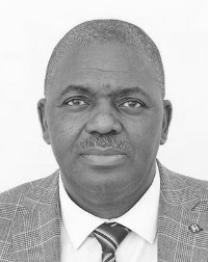
Oliver Maponga is an Economic Affairs Officer based at the United Nations Economic Commission for Africa Sub Regional Office for Southern Africa in Lusaka, Zambia. He has extensive experience in the minerals sector and has supported regional member States on policy development in the sector. He was part of the ECA team which anchored the development of the Africa Mining Vision and is actively involved in the continental approach to critical energy transition minerals exploitation. His current work also focuses on supporting inclusive industrialization in Southern Africa through industrial policy development and implementation, the development of regional value chains, strengthening regional economic integration, supporting the establishment of resource-based national and transboundary special economic zones and the implementation of the African Continental Free Trade Area Agreement by regional member States. Oliver holds a PhD in Mineral economics and has held research and teaching posts at the Western Australian School of Mines and the University of Zimbabwe’s Institute of Mining Research (IMR). While with IMR, Oliver was part of a team of mineral experts supporting analytical work in the sector and his special focus was on artisanal and small-scale mining, mineral economics, mining investment, socio-economic and environmental assessment of mining activities. He is a graduate of the University of Zimbabwe, McGill University (Canada) and the Western Australian School of Mines at Curtin University of Technology (Australia).

Rolf Traeger is Chief of the Least Developed Countries Section of the United Nations Trade and Development (UNCTAD). He coordinates the research and writing of the UNCTAD flagship publication The Least Developed Countries Report and of the Vulnerability Profiles series on the least developed countries pre-qualified for graduation.
He manages projects of technical assistance on development policies directed at governments and policymakers of developing countries. Based on his research work, he undertakes capacity-building and training activities for government officials, researchers and students in both the public sector and in academic institutions. He has worked at the United Nations for more than 30 years, in UNCTAD and in the Economic Commission for Europe.
He holds a PhD in economics from the Graduate Institute of International and Development Studies and a Master of Science in Economics from the University of Lausanne, a Bachelor of Arts in economics and public affairs from the Getúlio Vargas Foundation in São Paulo (Brazil), and a Bachelor of Laws from the University of São Paulo (Brazil).



